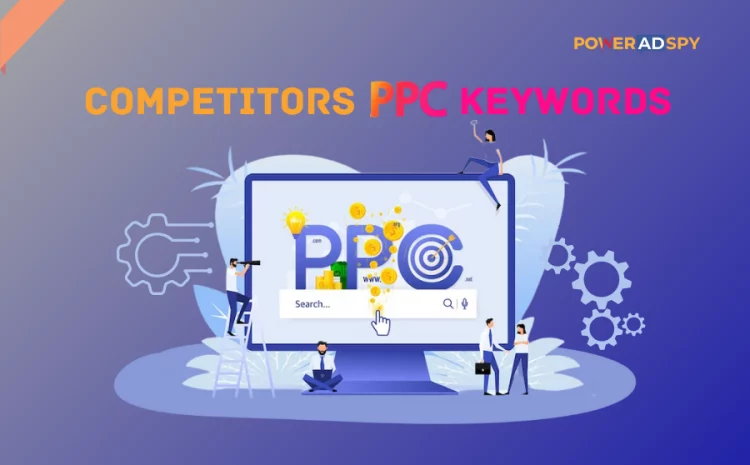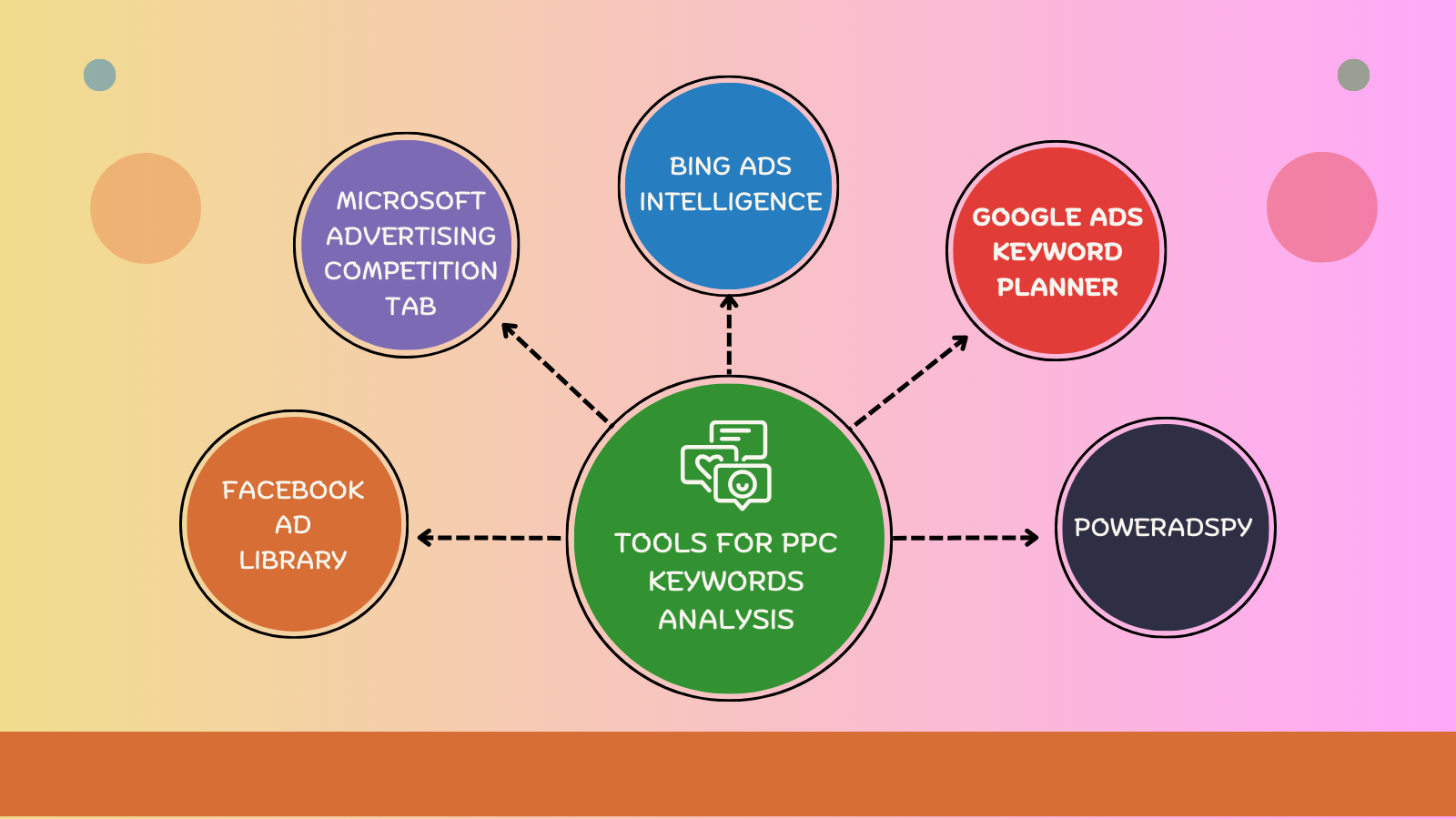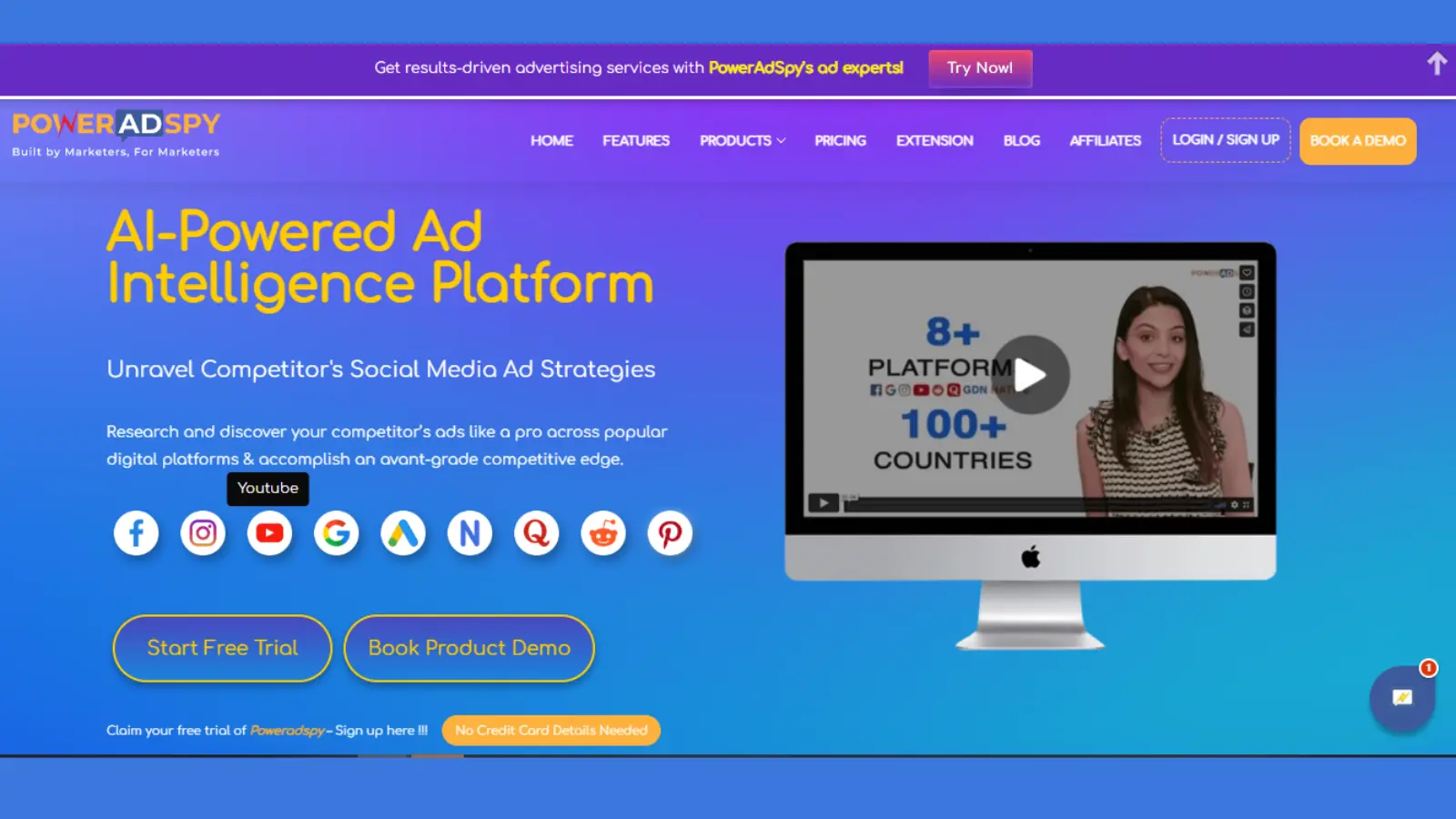Ultimate Reasons Why You Need To Analyze Competitor PPC Keywords
Are you new to the world of online advertising? Are you confused about how to find competitors PPC keywords? In modern online advertising, Pay-Per-Click (PPC) campaigns have become essential for businesses that want to distinguish themselves. However, success in this arena is not just about having eye-catching ads but about understanding your competition.
Competitor analysis in PPC is not an option; it is a necessity. This analysis is related to understanding the rivals before making your winning strategy. There are many tools available, like Google ad spy tools which helps in unraveling the secrets of PPC strategies used by your rivals.
This blog will guide you in unraveling the power of competitors’ keyword analysis, specifically through ad spy tools. We’ll dive into how these tools empower you to decode your competitors’ keywords, helping you elevate your ad strategies and stay ahead in the dynamic world of digital advertising. So, join us to uncover tactics that can set your PPC campaigns apart.
Hit ‘Play’ Button & Tune Into The Blog!
A Brief Overview Of PPC Advertising
Pay-per-click (PPC) advertising is a digital marketing model where advertisers pay a fee each time viewers click on their ads. PPC is an auction-based system where businesses bid on keywords relevant to their target audience. When a user searches for terms related to those keywords, ads are displayed, typically at the top or bottom of search engine results pages (SERPs) or on various websites.
Major ad platforms like Google Ads and Bing Ads and social media platforms like Facebook, Instagram, and LinkedIn offer PPC advertising. These platforms allow advertisers to bid on keywords to display their ads to users searching for or expressing interest in those terms.
Importance Of Keywords In PPC Campaign
Ads are shown based on the relevance of the keywords, ad quality, PPC bidding amount, and other factors, ensuring that users see ads aligned with their search intent or interests.
Keywords are the foundation of PPC campaigns, dictating when and where ads appear. Their relevance directly impacts campaign success:
- Relevance Equals Visibility: Targeting the right keywords ensures displaying ads to users actively seeking relevant information or products.
- Cost-Efficiency: Well-chosen keywords optimize ad spending. Straightaway, they attract clicks from users more likely to convert, making each click more cost-effective and maximizing the return on investment (ROI).
- Precision Targeting: Keywords allow advertisers to target their desired audience precisely. By selecting specific keywords related to their offerings, they can reach users more likely to engage with the ad, leading to higher conversion rates.
Even if you don’t know which keywords to target, you can check your competitors’ ad campaigns to find keywords that attract more clicks. Competitors PPC keywords are the specific keywords or phrases that rival businesses bid on to trigger their ads. Understanding these keywords provides valuable insights into their strategy and helps to craft your competitive campaigns.
Reasons To Analyze Competitors PPC Keywords
In the competitive realm of digital advertising, knowledge is power. Understanding your competitors’ strategies in their PPC campaigns can be a game-changer. Here are the reasons why competitor analysis is crucial:
Keyword Discovery and Expansion:
Understanding competitors PPC keywords unveils new terms and phrases relevant to your industry or niche that you might not have considered. Undeniably, it expands your keyword pool and potential reach. There are many Google ad spy tools that can help you to find keywords used by your competitors.
Insight into Strategies:
Analyzing competitors unveils the tactics they employ. You gain insights into their keyword choices, ad copy, and landing pages. This information acts as a blueprint for crafting your approach.
Identifying Opportunities:
Knowing what works for others provides insight into potential opportunities for your campaigns. Moreover, discovering gaps in your strategy or underutilized keywords can give you a strategic edge.
Refining Ad Copy:
By comprehending which keywords trigger your competitors’ ads, you gain valuable insight into the messaging that resonates with your mutual audience. This knowledge empowers you to craft more compelling ad copy.
Staying Relevant:
The digital landscape evolves rapidly. Keeping an eye on competitors ensures you stay abreast of changes in trends, strategies, and new entrants in your market.
Enhanced Targeting and Audience Segmentation:
Analyzing competitors PPC keywords offers a deeper understanding of your audience’s preferences. You can identify specific segments or demographics that are engaging with particular keywords. This insight aids in refining your targeting parameters and tailoring ad content to resonate more effectively.
Bids and Budgets Optimization:
A good look into the competition’s keywords reveals which terms are highly competitive and expensive. Understanding your contenders’ strategies assists in optimizing bids and managing budgets more effectively. For example, if you run ads on Google Ads, knowing your Google AdWords competitor keywords will help you strategically allocate resources toward high-value keywords.
Identifying Market Trends:
Trends in rivals’ keyword choices highlight evolving customer interests and behaviors. This information can guide your content and product development strategies.
Performance Benchmarking:
When you compare your keyword performance with competitors, you can set benchmarks and goals for your PPC campaigns. It can help in measuring success and identifying areas for improvement.
Improved SEO Strategy:
PPC keywords often correlate with SEO keywords. Analyzing competitors PPC keywords can provide insights into which terms are driving traffic and conversions, which you can implement in your organic search strategies.
Competition analysis isn’t about imitation; it’s about leveraging information to innovate and refine your PPC strategy, positioning your campaigns for further success.
PPC vs SEO
PPC (Pay-Per-Click) and SEO (Search Engine Optimization) are pillars of online marketing but function differently. Pay-per-click involves paying for ad placement and ensuring immediate visibility for selected keywords. It offers instant results but requires ongoing investment.
On the other hand, SEO focuses on organic, unpaid methods to improve website visibility. It requires time and consistent efforts to rank high on search engine results while offering long-term, sustainable traffic without directly making payment for clicks.
Tools To Perform Competitors PPC Keywords Analysis
Multiple tools are available to help you reveal competitors PPC keywords, providing valuable information to streamline your ads strategy.
- Facebook Ad Library and Ads Manager: Facebook’s Ad Library and Ads Manager offer a wealth of competitor data. Though not solely for competitor analysis, they allow users to view active ads from rivals, providing insights into ad creatives, messaging, and targeting strategies. While not explicitly displaying competitor keywords, analyzing ad content can offer valuable hints.
- Microsoft Advertising Competition Tab: Within Microsoft Advertising, the Competition tab reveals competitor performance metrics, such as ad impression share, overlapping keywords, and auction insights. While it doesn’t explicitly showcase competitor keywords, it provides valuable data for understanding the competitive landscape on the platform.
- Bing Ads Intelligence: Offered by Microsoft Advertising, this keyword research tool provides suggestions, search volume trends, and performance data. It assists in exploring and analyzing keywords across the Bing network, aiding in data-driven insights for campaign optimization.
- Google Ads Auction Insights: While providing comparative data on ad performance within auctions, this tool offers insight into impression share, average position, and overlap rate compared to competitors. It aids in understanding competitiveness and campaign performance.
- Google Ads Keyword Planner: A fundamental component of Google Ads, this tool identifies pertinent keywords, offering insights on search volumes, competition levels, and bid estimates. However, it does not directly disclose competitors PPC keywords.
- PowerAdSpy: Focusing on competitive intelligence, PowerAdSpy delves into competitor ad strategies, uncovering the keywords they target. It provides insights into ad creatives, targeting, and the specific keywords driving their campaigns. Marketers can use PowerAdSpy for competitor keyword research for ads running on Facebook and other platforms.
These tools serve as indispensable resources, aiding in uncovering ideal keywords while also answering crucial questions like, What keywords are my competitors using?
PowerAdSpy: All-In-One Competition Analysis Tool
To find keywords competitors are using, you can use PowerAdSpy, an AI-based Ad Intelligence tool. It has many beneficial features for advertisers, which can save a lot of effort and eliminate manual login to various platforms for ad research.
PowerAdSpy Features:
Comprehensive Ad Database: You can access a vast repository of 500M+ ads across multiple platforms like Facebook, Instagram, Google, YouTube, and more. It covers various ad formats, including images, videos, carousels, and text advertisements.
Advanced Search Filters: Robust search filters for precise ad discovery based on segment, competitor name, keywords, ad type, ad engagement (likes, shares), demographics, and more. It enables users to find specific ads or uncover trending campaigns.
Competitor Analysis: Reveals competitor strategies by dissecting their ad creatives, landing pages, and targeting approaches. Provides insights into the keywords competitors are targeting in their ads.
Ad Performance Insights: It provides analytics on ad performance metrics like engagement, reach, and shares. Moreover, it offers historical data on ad performance to identify trends and successful strategies.
Ad Tracking and Monitoring: Tracks ad variations and updates, allowing users to monitor changes in competitors’ advertising strategies over time. Alerts and notifications for specific ad campaigns or competitors PPC keywords, keeping users informed about competitor activity.
Detailed Ad Analytics: Provides in-depth analytics and insights on ad placements, audience targeting, and demographics, aiding in refining targeting strategies.
User-Friendly Interface: Intuitive dashboard and user interface for easy navigation and seamless use of this tool. It simplifies complex data into digestible insights for users of varying expertise levels.
Also Read,
3 Easy Ways To Do Competitor Keyword Research For Facebook Ads
All-In-One Guide To Using Google Ads (Formerly Known As Google Adwords)
How To Use Facebook Ad Library To Find Your Competitors?
Wrapping It Up
In conclusion, we have learned about the pivotal role keywords play in PPC ads and why performing competitors PPC keywords analysis is essential. Understanding the importance of insights from analyzing current marketing trends, the latest keywords, and emerging competitors helps advertisers optimize ad strategies and establish benchmarks. Competition analysis results also aid in budgeting, refining ad copies, and enhancing targeting and audience segmentation.
Various tools are available for ad analysis in the market, such as Google Ads Keyword Planner and Facebook Ads Library. However, PowerAdSpy stands out with its robust and comprehensive features for competitor analysis and ad tracking, providing results for all advertising media in one place, an advantage over all other ad analytics tools. By harnessing these insights, marketers gain a competitive edge, refining their strategies and crafting compelling campaigns that resonate with audiences, gaining an edge in the dynamic realm of PPC advertising.









